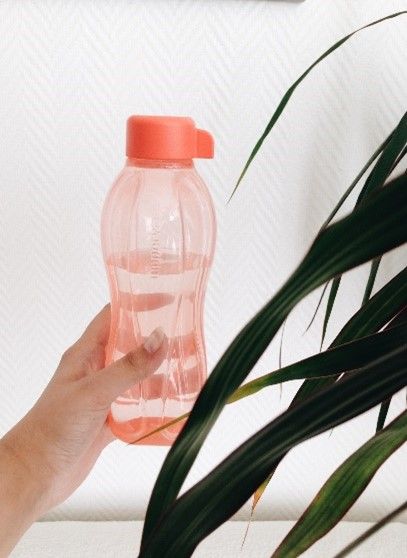The case
Late last year, the Supreme Court of Appeal ("SCA") handed down its judgment in the case of Dart Industries Incorporated and Tupperware Southern Africa (Pty) Ltd v Botle Buhle Brands (Pty) Ltd and Companies and Intellectual Property Commission which dealt with issues of trade mark registrability and passing off.
The facts and the law
The company behind the well-known Tupperware brand ("Tupperware Co") has a product called the Eco bottle. Tupperware Co has a trade mark registration for the shape of the Eco bottle, and it claimed that Botle Buhle was infringing this registration by selling a bottle with a similar shape – it sued for both trade mark infringement and passing off. In response, Botle Buhle applied to cancel Tupperware Co's trade mark registration. It raised various grounds:
- the shape trade mark is not capable of distinguishing, so it was an entry wrongly made, section 10(2)(a) of the Trade Marks Act, 1994 (the "Act");
- the trade mark was registered without an intention to use, section 10(4) of the Act;
- the trade mark is likely to limit the development of the art or industry, section 10(11) of the Act; and
- the trade mark was filed without a bona fide intention to use, Section 27(1) of the Act.
The High Court found in favour of Botle Buhle and ordered that the registration be cancelled. Tupperware Co took the case on appeal to the SCA, where Judge Makgoka handed down the judgment. There were two main issues:
The application to cancel the registration for the shape of the bottle - non-distinctiveness
Case law
The judge summarised a few well-known South African judgments:
- Beecham - Public perception is key because the issue depends on whether the trade mark is seen as an indicator of origin. People generally don't assume that the shape of a container is the trade mark.
- Bergkelder- The mere fact that the shape is new does not mean that it will be seen as a trade mark, and the shape must certainly differ significantly from the norm in order to be a trade mark.
The Eco bottle's hourglass shape – fancy and trendy

Image source: Unsplash
Tupperware Co argued that the Eco bottle departed significantly from the norm because of the hourglass shape. The court, however, was unimpressed. The judge said that, although "visually distinctive" and "different to other bottles on the market", the Eco bottle did not "represent a significant departure from the norms and customs of the water bottle sector". The average consumer would see the shape of the Eco bottle as "representing no more than a fancy, trendy or more appealing water bottle".
The recognition-association test
Moving on to the so-called "recognition-association test", Judge Makgoka concluded that the "perception by consumers that goods or services designated by the [trade] mark originate from a particular undertaking, means they can rely upon the [trade] mark in making or confirming their transactional decisions".
The judge went on to say that "there is simply no evidence that the purchasers of the Eco bottle perceive the shape to indicate that it originates from a particular source, let alone Tupperware [Co]".
What to be aware of
If the shape of your product is significant, it is often a good idea to reference the shape in advertising, for example through words like "look out for the ... (type of product) with the ... (description of shape) shape". In addition to trade mark protection, it is advisable to seek complementary protection by applying for a registered design. A registered design protects a design applied to an article, i.e.: the appearance of the article as it is judged by the eye. As a registered design affords protection for the visual features and aesthetic look of an article, it constitutes a valuable form of IP.
The upshot
The judge concluded that "it may well be that the apparent popularity of the Eco bottle is due to it being part of the popular Tupperware [Co] range of goods. That, more than its shape, seems to be the attractive force to the Eco bottle". The judge concluded that the High Court had correctly ordered cancellation of the registration.
The passing off claim
Straining every nerve
With the trade mark registration cancelled, trade mark infringement was no longer an issue. But passing off was. Tupperware Co claimed that the Botle Buhle was, by selling a bottle that was very similar to the Eco bottle, guilty of passing off.
Judge Makgoka agreed that there was passing off, making the point that mere use of the word trade marks TUPPERWARE and BOTLE BUHLE are "inconspicuous and do little or nothing to distinguish the two products". The judge went on to say that there was clear intent: "It seems to me that the overall design of the Botle Buhle bottle was not to distinguish it from that of Tupperware [Co], but rather to associate the two... Buhle seems to have strained every nerve to associate its water bottle with the Eco bottle".
Tupperware parties
Dealing with Botle Buhle's claim that there would be no confusion because both parties sell their products through retail "parties" rather than in shops, the SCA held that the High Court had erred in finding that this reduced or negated the possibility of confusion. There had been passing off.
The final result
Even-stevens - Cancellation of the registration for the shape of the Eco bottle, yet a finding of passing off.
The content of this article is intended to provide a general guide to the subject matter. Specialist advice should be sought about your specific circumstances.


